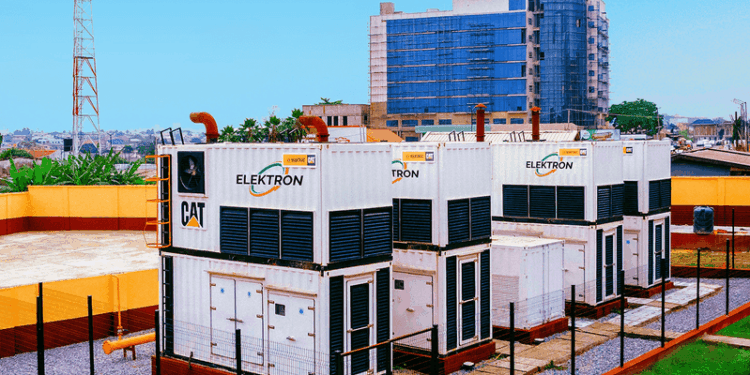Elektron Finance SPV Plc, a funding vehicle wholly owned by Elektron Energy Development Strategies Limited (“Elektron”), an energy infrastructure development group based in Nigeria, has announced the launch of its N200 billion Bond Issuance Programme.
The company emphasized in a statement shared with Nairametrics dated August 11 that the commercial operation of its 30MW gas-fired embedded generation plant located in Victoria Island, Lagos, is scheduled to begin in 2026.
Proceeds from the bond will be deployed towards the development of the plant, the statement highlighted.
This development follows the successful completion of a N4.64 billion 15-year Series 1 Senior Guaranteed Fixed Rate Infrastructure Bond, approved by the Securities and Exchange Commission (SEC).
“The Series I Bond, guaranteed by Infrastructure Credit Guarantee Company Plc (InfraCredit), which is rated “AAA” by both Agusto & Co. and Global Credit Rating Company (GCR), received approval from the Securities and Exchange Commission (SEC).
“Proceeds from the bond will be deployed towards the development of the embedded independent power project being developed by Victoria Island Power Limited (VIPL), a wholly owned subsidiary of Elektron Power Infracom (EPI), a subsidiary of Elektron,” the statement partly reads.
This bond issuance marks Elektron’s debut in the Nigerian debt capital markets.
Key Features of the Project
The Victoria Island Power Limited (VIPL) initiative will introduce:
- A 30MW gas-fired embedded generation plant, reducing reliance on diesel generators.
- Three high-efficiency 10MW reciprocating gas engines from Wartsila.
- A dedicated 5km distribution network serving major commercial areas in Victoria Island.
- Long-term Power Purchase Agreements (PPAs) with prominent commercial off-takers and EKEDC.
More Insights
- Regarding the project, Elektron added that while the distribution network is substantially complete, “construction of the generation plant has commenced and is scheduled for commercial operations in 2026.”
- The project is expected to serve as a model for decentralized energy delivery in urban settings, designed to deliver dependable electricity to businesses in one of Nigeria’s most economically critical zones.
According to the statement, “The VI Power Project is being implemented in partnership with the Eko Electricity Distribution Company Plc and backed by capital from InfraCredit, ARM-Harith Infrastructure Fund, Nigeria Sovereign Investment Authority, Bank of Industry, FBNQuest Merchant Bank Limited, and Stanbic IBTC Infrastructure Fund.”
“The bond issuance was led by Vetiva Advisory Services Limited and Anchoria Advisory Services Limited as Lead Issuing Houses, with CardinalStone Partners Limited, ARM Capital Partners, FBNQuest Merchant Bank Limited, and Iron Global Markets Limited acting as Joint Issuing Houses. Custodian Trustees Limited served as Trustee, while legal advisory was provided by Detail Commercial Solicitors and Templars.
“The bonds were rated by Agusto & Co. and Global Credit Rating Company (GCR).”
Tola Talabi, MD and Co-CEO at Elektron Energy, commented on the development:
“We are especially grateful to InfraCredit for its unwavering support, and to our bondholders for their trust in our vision.”
“Their involvement reflects a shared belief in Elektron’s capacity to deliver sustainable energy infrastructure projects.”
Elektron promised relevant stakeholders and authorities its mission to drive the emergence of a regional energy grid based on cleaner gas and renewable resources.
What You Should Know
The Nigerian energy sector is fast-growing as the Rural Electrification Agency (REA) recently signed grant agreements with nine renewable energy companies to provide electricity access to 17.5 million Nigerians.
This is the first collaboration under the World Bank-funded Distributed Access through Renewable Energy Scale-Up (DARES) project, following its official launch in 2024.
The Managing Director of REA, Abba Aliyu, who spoke at the signing ceremony in Abuja on Monday, April 29, 2025, said the project aimed to electrify 17.5 million Nigerians by deploying 1,350 mini-grids.















